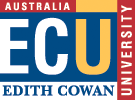COURSE INFORMATION
Disclaimer
This course information may be updated and amended immediately prior to semester. To ensure you have the correct outline, please check it again at the beginning of semester.
| N69 / H19 Master of Applied Linguistics | |||||||||||||||||||||||||||||||||||||||||||||||||||||||||||||||||||||||||||||||||||||||
Note: This course is being reviewed for 2005 and will be significantly restructured. Please contact the School of International, Cultural and Community Studies.
INTRODUCTION The Master of Applied Linguistics is offered jointly by the School of International, Cultural and Community Studies and the School of Education.
The course can be completed in one year full-time or part-time equivalent. It provides an opportunity to extend students’ knowledge of language issues and their analytical and critical expertise, providing for advanced scholarly and professional work in a field relevant to applied linguistics, leading to the completion of a piece of research.
The Master of Applied Linguistics is available in two specialisms:
Language Studies Language Teaching (including both Teaching English to Speakers of other Languages (TESOL) and Teaching Languages other than English (TLOTE)).
The Language Studies specialism is intended to provide a course for language specialists and involves the advanced study of linguistics and its application to such areas as language analysis, language policy and planning, language teaching, multilingual services, and interpreting and translating.
The Language Teaching specialism is intended to provide a course for persons concerned with educational practice in the field of TESOL and TLOTE to undertake advanced coursework and research in an aspect of language teaching of particular interest to them and prepare them to provide educational leadership in the organisations and forums in which they practise.
COURSE LOCATION AND MODE OF STUDY The course is available by full-time or part-time study on Mount Lawley campus. It is also available by external study and on-line.
ADMISSION REQUIREMENTS A relevant fourth year qualification such as Bachelor of Arts honours degree, the Bachelor of Education or Graduate Diploma of Arts (Language Studies).
For admission to the Language Teaching specialism a student must have an appropriate education qualification and experience.
For admission to the thesis only option a student must have a relevant first class or upper second class honours degree.
COURSE STRUCTURE The Master of Applied Linguistics is an eight unit program and can be completed through one of the following options:
(i) a research thesis (equivalent to eight units); (ii) four units of coursework and a four unit Research thesis; (iii) six units of coursework and a two unit project; (iv) a coursework-only option (eight units of coursework).
by Coursework only Students are required to complete the three core units (3 x 15 = 45 Credit Points) and five of the remaining units (5 x 15 = 75 Credit Points) listed under Specialism units and options below:
|
|||||||||||||||||||||||||||||||||||||||||||||||||||||||||||||||||||||||||||||||||||||||
| |||||||||||||||||||||||||||||||||||||||||||||||||||||||||||||||||||||||||||||||||||||||
Last Updated - Higher Education: 18/11/2004
